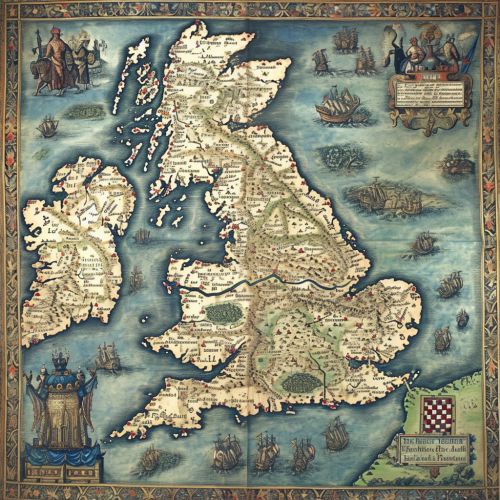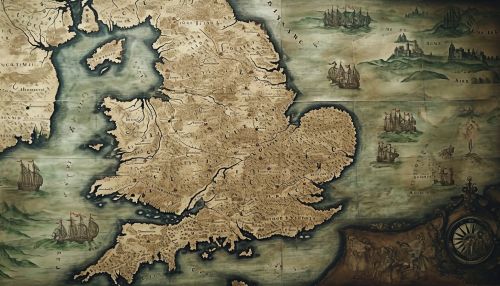Tudor conquest of Ireland
Background
The Tudor conquest of Ireland was a pivotal period in Irish history, marking the end of Gaelic Ireland and the beginning of English rule. This period, spanning from the late 15th to the early 17th century, saw a series of military campaigns, political maneuvers, and social changes that transformed the island nation.
The Tudor Dynasty and Ireland
The Tudor dynasty, beginning with Henry VII in 1485, had a complex relationship with Ireland. Initially, the Tudors sought to maintain a degree of control over the island through the use of English-appointed lords, a system known as Lordship. However, this approach proved ineffective, as the lords often lacked the resources or inclination to enforce English law and customs.


Henry VIII and the Kingdom of Ireland
The situation changed dramatically under Henry VIII, who in 1541 declared himself King of Ireland, a title previously unrecognized by the English monarchy. This was a significant departure from the previous system of Lordship and marked the beginning of a more direct form of English control over Ireland. Henry's decision was driven by a combination of political, religious, and strategic considerations.
The Tudor Reformation and Ireland
The Reformation under Henry VIII and his successors had profound implications for Ireland. The Tudors sought to impose Protestantism on a largely Catholic population, leading to widespread resistance and conflict. The Reformation also served as a pretext for the seizure of church lands and wealth, further alienating the Irish population.
The Military Conquest
The Tudor conquest of Ireland was not solely a political and religious endeavor; it also involved a series of military campaigns. These campaigns, often brutal and destructive, were aimed at subduing the Irish lords and consolidating English control. The most significant of these was the Desmond Rebellion (1569-1573 and 1579-1583), which resulted in the destruction of the Gaelic order in Munster.
The Plantations
The Tudors also pursued a policy of plantation, settling English and Scottish colonists on lands confiscated from the Irish. This policy, particularly under Elizabeth I and James I, had a profound impact on the demographic, economic, and cultural landscape of Ireland.
Legacy
The Tudor conquest of Ireland left a lasting legacy. It marked the beginning of centuries of English, and later British, rule over Ireland. The religious, cultural, and social changes initiated during this period continue to shape Ireland's identity and politics to this day.
